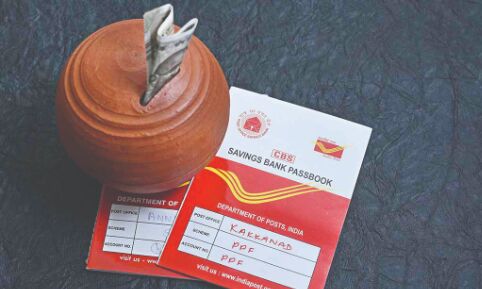Our 'hard'-ly earned money
The government may have withdrawn interest rate cut on small savings schemes but people’s money is still earning the least for them in years

An unintentional failure to notice something is defined as "oversight". It's carelessness, an error, a lapse of judgement — but not innocuous when it comes from the government. The run-up to April Fool's Day, lost all humour when the central government announced its decision to decrease the interest rates on Small Savings Schemes. The interest rate on Public Provident Fund (PPF) had been slashed from 7.1 per cent to 6.4 per cent and on National Savings Certificate (NSC), from 6.8 per cent to 5.9 per cent. Savings deposit interest rate was revised downwards from 4 per cent to 3.5 per cent as were those for 1-year time deposit, senior citizen savings schemes, Kisan Vikas Patra, and so on. The next morning, the cut was rolled back citing an "oversight", adding to a lengthening list of government volte-face on key policy decisions.
Was it oversight or overzealousness or simply a postponement of impending rate cuts? The middle class, and specifically senior citizens and retirees, are most affected by a cut in interest rates since they invest the most in popular Small Savings Schemes such as PPF and NSC. Only a minuscule percentage of the Indian population has exposure to stock markets opting instead to accrue savings through government-guaranteed schemes. It's despicable though that today the middle class is earning the least from such schemes than in many years. Interest on small savings scheme had been cut by the government last year as well and if the recent interest cut had not been withdrawn, then small savings schemes would have had the lowest interest rates in over 40 years.
Heard the saying, 'make your money work for you'? Well, never before has our hard-earned money given such little returns. In the last few years, Post Office savings schemes have witnessed sharp cuts too. Bank deposits are just as bad. Even though loan interest rates are lower than before with a view to encourage people to take loans, the earnings from fixed deposits and others, are meagre. If citizens can't earn enough, spend more on essential goods and services due to rising inflation, and their savings don't give bang for their buck, it's a tough chance that they would take on newer loans.
Small savings schemes are financial instruments backed by the government and therefore, have the people's trust. They were envisaged with the goal of encouraging a savings habit among the citizens while giving assured, risk-free returns. For years, the common man has depended on these saving schemes as a means of putting aside a portion of their earnings for retirement, special occasions, or a rainy day. Such vagaries of announcements are amateurish at best and alarming at worst. It also raises the question if the withdrawal was keeping in mind the ongoing election season in crucial states such as West Bengal, which is the highest contributor to small savings schemes? News reports suggest that Bengal collected about Rs 90,000 crore from small savings schemes in 2017-'18; and always around 12-15 per cent of the total national collection in the last few years. If the U-turn is a political move, then we can expect this rate cut to be an ungainly reality soon
In India today, some of the rich get richer, the poor get poorer, and the middle class — true to its name — gets squeezed more. The taxable citizens shoulder steep taxes, new taxes, whimsical taxes, additional taxes (and cess — let's not forget cess!) every year. Which begets the question — how cash-strapped is the Indian government that it must pick the pockets of honest, hardworking citizens looking to build some savings?
The writer is an author and media entrepreneur. Views expressed are personal



